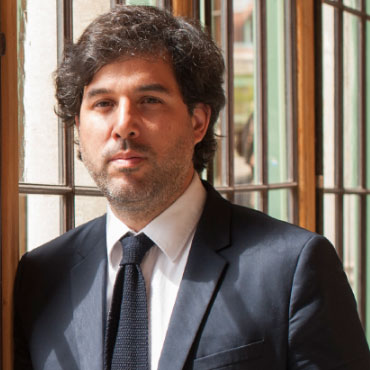NEW CITY BUSINESS MODELS – SHARING ECONOMY
Total Hours: 20 hours
Seminar Faculty: Gonzalo Delacámara
The Seminar will explore economic, social, and institutional conditions that lead to successful business models necessary to implement smart city practices, both in terms of the management of the water-energy nexus, transport systems, infrastructure development, climate change adaptation, etc. The Seminar will explore how smart cities create a fertile space for new business models and innovation, mostly around the so-called ‘sharing economy’.

Robust decision-making and long-term planning require factoring in multiple scales (spatial and temporal). Increasing challenges in spatial development and urban design demand new approaches that can deal with complex trade-offs and synergies throughout those multiple scales. For instance, novel experiences with citizen observatories will also be explored, as a way to harness the potential for smart cities of citizen-generated data. Some institutional setups may be effective means to yield new business opportunities and trigger innovation (technological, economic, social…) to improve the way communities deal with contemporary social, economic, and environmental challenges.
The reduction of information costs, the potential for economies of scope and scale, the mitigation of externalities, the contribution to resource efficiency and the circular economy, and the enhancement of resilience will also be explored.
The link between environmental and social innovations as drivers of economic and social progress will also be analysed.
Faculty

Gonzalo Delacámara is an economist and environmental economist. He was a Senior Lecturer on Economic Analysis at the UAH (1997-2012). Gonzalo, PhD, is currently the coordinator of the Department of Economic and Institutional Analysis at IMDEA Water Foundation. International consultant on water and energy economics for the Economic Commission for Latin America and the Caribbean (ECLAC), UNDP, FAO, and UNESCO of the United Nations and international banks such as the World Bank or the Inter-American Development Bank (IADB).
Gonzalo has co-ordinated a number of research projects over the last few years: the economic valuation of biophysical flows of ecosystem services in Spain, the economic analysis of environmental external (marginal) costs of electricity generation and the economic valuation of water resources in Latin America.
Gonzalo has lived in countries such as the UK, Chile, Colombia or Nicaragua. While in the UK, Gonzalo developed a number of projects for the European Commission (economic policy instruments for water management, economic analysis of environmental taxes and charges, water pricing, spatial development, etc.).
In Latin America, he has developed the economic analysis of public policies for the promotion of liquid biofuels for transport.
As a research fellow at IMDEA Water, he has recently worked on the economic analysis of water conflict management in Peru and water management in Chile, including the assessment of water markets.
Gonzalo’s approach to architecture, urban design and spatial development is based on microeconomics: welfare gains from sounder and more sustainable designs, analysis of individual preference structures and social choice.
Requirements
No special course requirements
Grading System
- 0 – 4.9 Fail
- 5.0 -6.9 Pass
- 7.0 – 8.9 Good
- 9.0 – 10 Excellent/Distinction